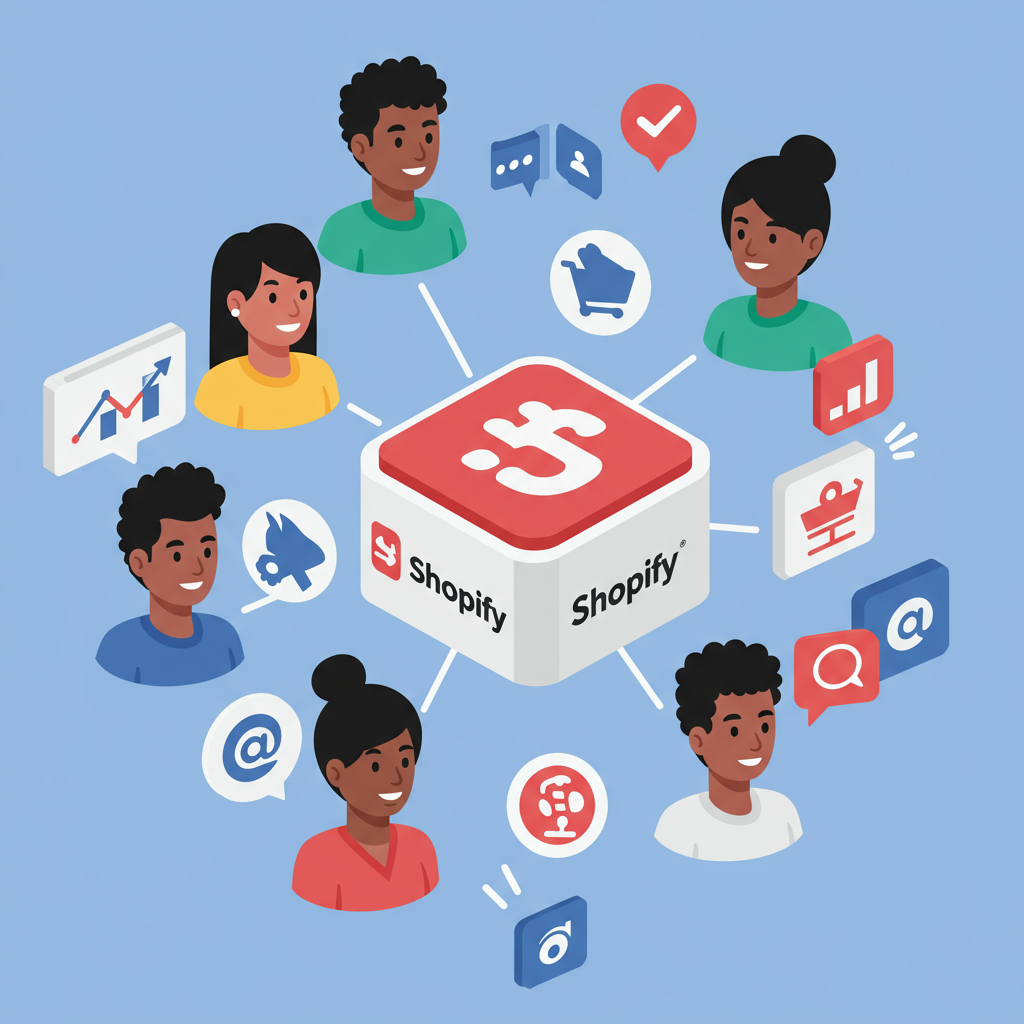Discover how specialized tools can revolutionize your e-commerce outreach and drive authentic sales.
As a Shopify merchant, you’re constantly looking for innovative ways to grow your brand and reach new customers.
In today’s crowded e-commerce landscape, traditional advertising methods often fall short of delivering the authentic connection consumers crave.
This is where influencer marketing steps in, offering a powerful avenue to build trust and drive sales through credible voices.
I’ve seen firsthand how impactful a well-executed influencer campaign can be for a Shopify store.
It’s not just about celebrity endorsements anymore; it’s about micro and nano-influencers who have deeply engaged communities.
These individuals, often with smaller but highly dedicated followings, can generate incredible ROI for your products.
However, managing an influencer marketing strategy can quickly become overwhelming.
From identifying the right influencers to negotiating terms, sending products, tracking performance, and managing payments, the manual process is incredibly time-consuming.
This is precisely why I want to talk about Shopify influencer marketing platforms.
These specialized tools are designed to streamline every aspect of your influencer campaigns, making them accessible and efficient for merchants like us.
So, what exactly are these platforms, and how do they integrate with your Shopify store?
At their core, influencer marketing platforms are software solutions that connect brands with relevant influencers.
They provide a centralized hub for managing your entire campaign lifecycle, from discovery to analysis.
For Shopify merchants, the integration aspect is crucial. Many platforms offer direct integrations that allow for seamless product fulfillment, order tracking, and even commission payouts.
This means less manual work for you and more time to focus on your core business.
One of the primary benefits I’ve found is the enhanced discovery capabilities. Instead of sifting through social media manually, these platforms use advanced filters and AI to help you find influencers whose audience demographics and content align perfectly with your brand.
They often provide detailed analytics on an influencer’s audience, engagement rates, and past brand collaborations, giving you the data you need to make informed decisions.
Beyond discovery, these platforms act as a robust CRM (Customer Relationship Management) system for your influencer relationships.
You can manage communications, track deliverables, and store all relevant information in one place, ensuring nothing falls through the cracks.
Campaign management features are another huge advantage. You can set up campaign briefs, approve content, and monitor progress in real-time.
This level of oversight is invaluable, especially when running multiple campaigns simultaneously.
Performance tracking and analytics are perhaps the most critical features. These platforms allow you to measure key metrics like reach, engagement, conversions, and ROI directly.
Many integrate with your Shopify store to attribute sales directly to specific influencers, giving you a clear picture of your campaign’s effectiveness.
Payment processing is also simplified. Instead of individual invoices and manual transfers, many platforms facilitate automated payments based on agreed-upon terms, whether it’s a flat fee, commission, or a hybrid model.
When choosing a platform for your Shopify store, I recommend looking for a few key features.
First, strong Shopify integration is non-negotiable. Does it sync products, track sales, and manage commissions effortlessly?
Second, consider the influencer discovery tools. How robust are the filters? Can you search by niche, audience demographics, or engagement rates?
Third, evaluate the campaign management capabilities. Is it easy to create briefs, approve content, and communicate with influencers?
Fourth, look at the analytics and reporting. Does it provide actionable insights into your campaign performance and ROI?
Finally, think about the pricing model. Some platforms charge a monthly fee, others take a percentage of ad spend, and some offer tiered plans.
There are various types of platforms available, from self-service marketplaces where you find and manage influencers yourself, to full-service agencies that handle everything for you.
For most Shopify merchants, a self-service or hybrid platform offers the best balance of control and efficiency.
Getting started usually involves connecting your Shopify store, setting up your brand profile, and then beginning your influencer search.
Once you’ve identified potential partners, you can send out collaboration invitations and negotiate terms directly within the platform.
Remember, building genuine relationships with influencers is key. Treat them as partners, not just advertisers.
Provide clear briefs, but also allow them creative freedom to ensure their content resonates authentically with their audience.
Regularly review your campaign data to understand what’s working and what isn’t. This iterative process will help you optimize future campaigns for even better results.
Influencer marketing, powered by the right platform, can be a game-changer for your Shopify business.
It allows you to scale your outreach, build brand authenticity, and ultimately drive significant sales.
I truly believe that investing in a good influencer marketing platform is an investment in the future growth of your Shopify store.
What do you think about this article? I’d love to hear your thoughts and experiences with influencer marketing for your Shopify business.






